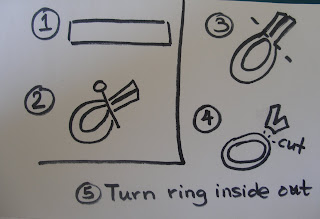Welcome to the second edition of A Carnival of Aces! The theme for this month’s post is The intersection between race, ethnicity, culture, or nationality and the asexual identity. I'm sorry for the length of that sentence, but I wanted to make it broad while avoiding confusion. I chose this topic because it has been under-discussed and out of all the topics I was considering, this is the one I've seen the least amount of writing on. Although you may or may not find this topic relevant to you personally, it is open to everyone. All I ask is that if race/ethnicity/culture/nationality is a place where you have privilege, to please be aware of that while writing.
Posts may be submitted for this second round of the carnival until June 1st, at which point the carnival will travel to a new blog and I will create a round-up post full of all the submissions for this month.
Any post dealing with both asexuality and the theme of the carnival is welcome. Alternate forms of media (images, video, poetry, fiction, etc) are also welcome as long as they deal with the theme. If you’re not sure whether your piece is on-topic, submit it anyway and we’ll figure it out. Submissions should be posted as comments here or emailed to me at sanfranciscoemily [at]gmail[dot]com. You can also send me things on Tumblr if you're more comfortable with that; my name there is the-pineapple. If you don’t have a blog but you want to submit a post, I’m glad to host guest posts here; again, please contact me if you want to do that. You can make a guest post anonymously if you would like.
Some background information about this project:
For those who are unfamiliar with them, a blog carnival is an event in which many people write blog posts around a single theme. These posts are then collected at the end of the carnival and linked together by the carnival’s host.
This particular blog carnival is an effort to encourage a variety of different voices to speak about asexuality from their own perspectives. Anyone can participate, but the responses should deal with asexuality or the asexual spectrum (grey-As, demisexuals) in some way. They should also relate in some way to the theme of each round of the carnival, which will change from month to month and will be chosen by the person hosting the carnival for that month.
Thank you all very much!
For much of the text of this post, the credit goes to Sciatrix.

